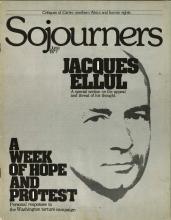Philosopher Susan Sontag has said that women cannot liberate themselves without fighting for power. She comments,“[Women’s] liberation is not just about equality...It is about power. Women cannot be liberated without reducing the power of men.” Because Ms. Sontag possesses an outstanding intellect and expresses a view common to many opponents and proponents of feminism, it is worth our while to examine what is right and what s wrong about her assessment.
According to the philosophers of the women’s movement, the ultimate goal of women’s liberation is a non-exploitative, non-oppressive, non-coercive society. Stated positively, the goal of women’s liberation is a society based on mutuality rather than machismo. Machismo is the assumption that we prove our worth to others and ourselves by performance and achievement, by out doing others.
Mutuality, on the other hand, by assuming the spiritual worth of each individual and of the community as a whole, stresses cooperation rather than competition. In one-to-one relationships, mutuality assumes that either both persons win (reaching new intimacy as a result of working out their conflicts) or both persons lose (by the loss of intimacy that occurs when one person “wins” an argument). Thus it is true that the goal of women’s liberation is radically political; it entails a radical change in the attitudes and structuring of society.
But when Ms. Sontag says that women cannot be liberated without reducing the power of men, it sounds as if she is falling into the machismo assumptions of our society, in which it is assumed that some people must be the losers in order that other people may triumph. This is the assumption that the Lord Jesus Christ tirelessly tried to correct during the three years he wandered throughout the Galilean countryside combating the false assumptions of the patriarchal society into which he was born.
Read the Full Article

